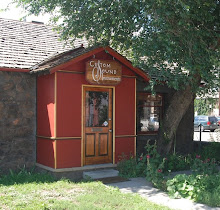 What happens to a guitar when it's dried out?
What happens to a guitar when it's dried out?Here's one example.
The critical geometry is completely affected. Setting up the guitar is difficult. In addition to this, the entire structure of the instrument is under abnormal tension. There are many different pieces of wood glued together inside a guitar, different types of wood, with grain lines pointing in all different directions; when these various components of the instrument dry out, they contract in different directions and to varying degrees of subtlety. This creates undo tension throughout the structure of the instrument and it therefore doesn't play the same, and it doesn't sound the same either.
It's true that not all guitars or like instruments need the be humidified to prevent cracks or "visible" damage. However, when someone brings me a guitar that is dried out, even if they are happy enough with it's playability, the damage is visible to me.
I've also seen many older instrument that have been dry for a long time. Some say the guitar has been "acclimated." Rarely is a guitar properly "acclimated," and some guitars refuse to "acclimate." Some of the older instruments don't show much extreme trauma, but none are in pristine condition. Most have had crack repairs and other work done to remedy the effects of being turned into guitar-jerky.
Keep in mind, a guitar with the correct geometry, kept at the right humidity, plays and sounds the best. Too much humidity makes the guitar play and sound horrible as well. However, too little humidity is generally more detrimental to the structural integrity of the instrument. And besides, you will never have a problem with excessive humidity if you live in northern Arizona. So get a humidifier already!
My next post will discuss how to properly humidify your instrument.




